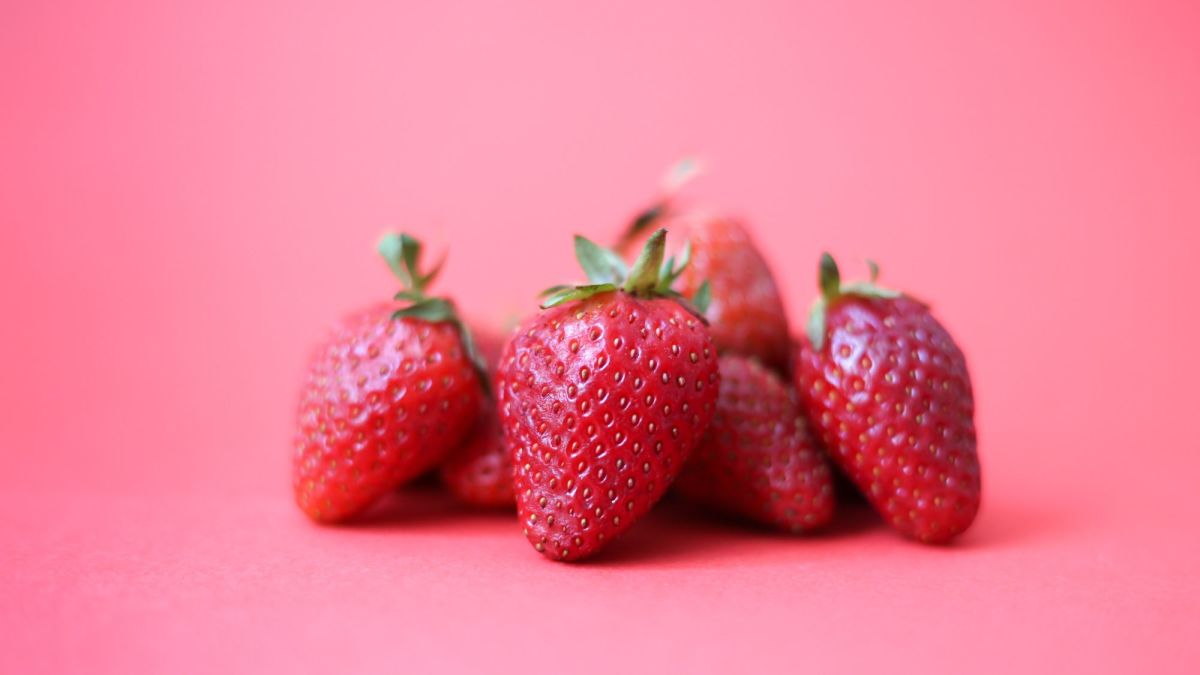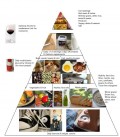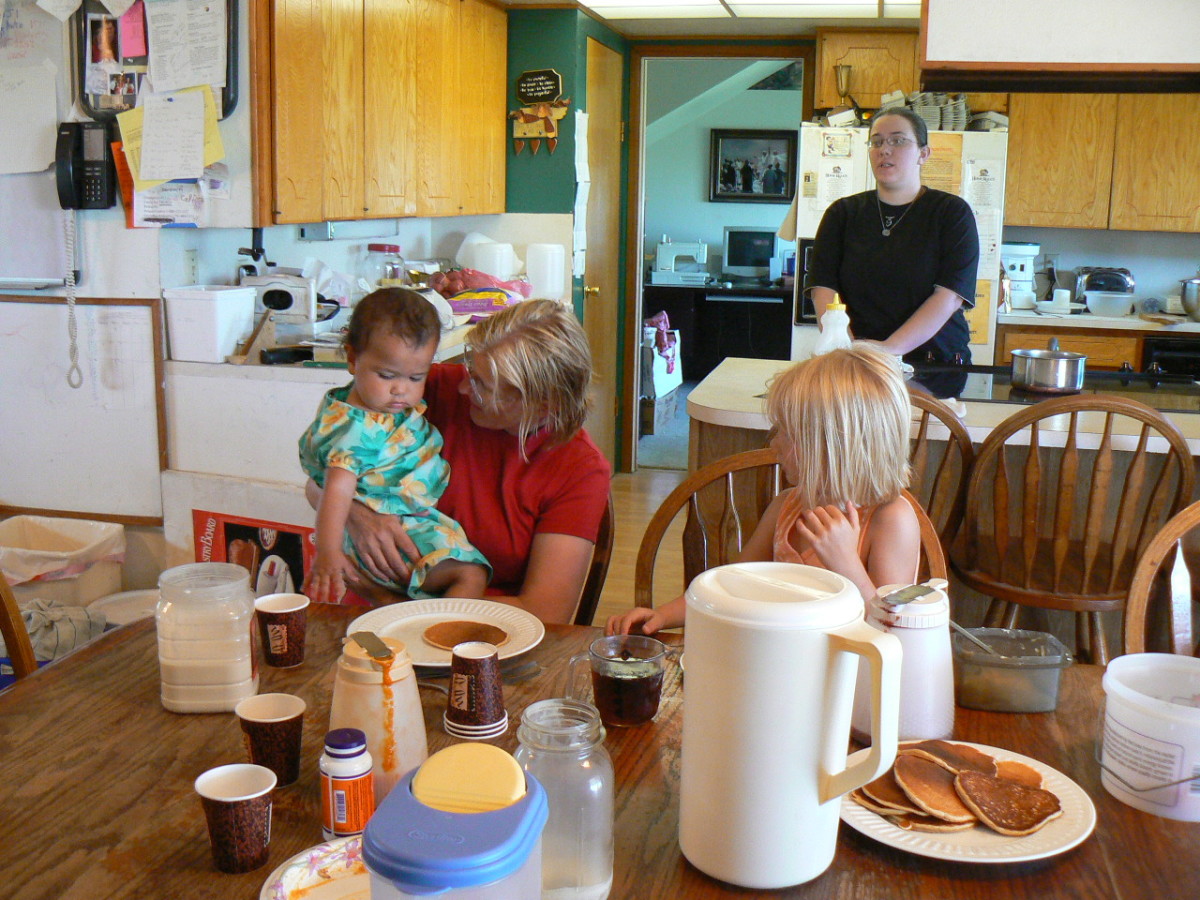- HubPages»
- Family and Parenting»
- Parenting Skills, Styles & Advice»
- Parenting Advice & Tips
Teaching Kids to Be Healthy From the Beginning
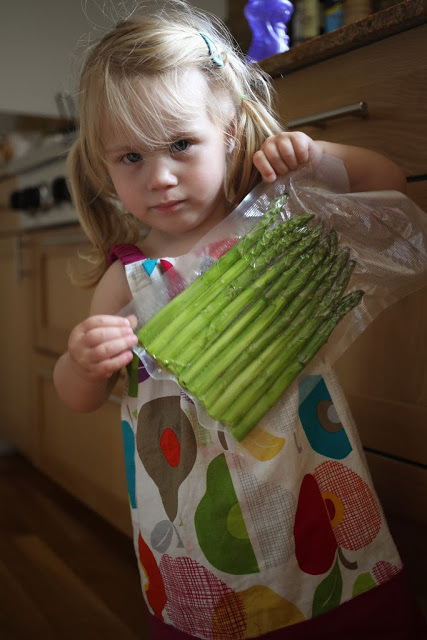
Contrary to popular belief, kids are not born desiring cookies, candy, and ice cream. They are taught these desires by parents making the choice not to teach their little ones about eating healthy and making good food choices. Their likes and dislikes, their food cravings, and even their individual tastebuds begin developing from the very beginning.
By this I don't mean when you are packing their lunch boxes for school, at six months old when you start feeding them real food, or even when they're born, but even sooner than that. Babies’ tastebuds are already well developed by your 7th month of pregnancy, and can respond to the way different foods taste by changing the expressions on their faces, even in the womb.
So, even before birth your baby's sense of taste is developed and he is responding to everything you are eating. This is why when you eat spicy foods while pregnant, your baby kicks you more, becomes restless, or even has a hard time sleeping.
I’ve had many moms even tell me when their baby likes or dislikes any food they’ve eaten from inside the womb. If you are eating tons of junk food while pregnant, some of these habits (both yours and your baby's) will be harder to break later.
Quick Quiz
When do you feel like these habits need to begin?
Pregnancy
This is actually one of the most critical times to develop those tastebuds you want so much in your kids. For a reason no one can explain, a baby has many more tastebuds than he'll ever need after delivery. Just like brain cells as a child is growing up, if certain tastebuds are not used, or not needed, they will disappear before birth.
By filling your diet with healthy foods that will keep you at your peak performance, and help you to create a new life with the best possible chance of living healthy, you are also creating essential habits and food cravings in your infant that will thrive after he is born.
By depriving your body and your baby of those important foods, he may lose the “taste” for those foods altogether. Ever hear of adults that won’t get near anything green? I know plenty of them.
Delicious salads full of fruits, vegetables and nuts, well-balanced dinners with a protein, a fruit and a vegetable, and daily snacks of dairy products, fruits, vegetables and whole grains will not only make you feel better, but will give your little one just the right start to eating healthy for a lifetime.
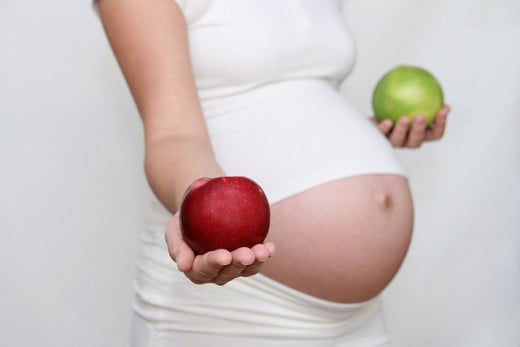
Infancy
If you have chosen to formula-feed your little one, you may want to read my article on Healthy Alternatives to Baby Formula to see what ingredients are really in commercial baby formulas and what you can do to offer your infant a healthier alternative.
If you are breast feeding, just as your baby was eating all of the same foods you were through your umbilical cord, now it’s the same situation, but through your breast milk. Not only is your little one experiencing all the same tastes you are now, but he is able to smell your foods, and see what you are eating. At such a small size and young age as birth through 6 months sounds, she is already learning your eating habits and food choices.
She doesn’t have to taste the potato chips to see and smell you chowing down on them every afternoon on the couch. She doesn’t need to experience the cake you’re eating to see the sugar binge in progress. But he will take note of the healthy sandwiches and soups you are making, and the fruits and cheeses you are eating for snacks.
What’s even more critical is that if you’re breastfeeding, his little body will feel the difference your food choices make as well, and will make mental connections and physical connections to those foods. Make good choices when you have a baby in your arms, and those choices will feed over into the choices he makes when you are giving him real foods to eat.

When Starting Real Food
When feeding your kids, I know it’s tempting to give them a constant regimen of Cheerios, macaroni and cheese, and hot dogs, but these are probably some of the worst food staples for your children.
Cut up pieces of fruits and steamed veggies, offer wheat toast in small pieces, and give her little chunks of cheese instead. Yogurt, peanut butter, and even hummus also make for great snacks in appropriate doses for developing babies.
Even at the tender age of 6 months old, when parents generally begin giving their children solid foods, your choices in the foods you provide them are creating an impression and teaching them about making appropriate food choices in the future.
When your little ones are joining you for breakfast, lunch, and dinner at the table, serve foods that you would want them to choose; chicken, beef, pork, seafood, fresh fruits, fresh vegetables, wheat breads, etc.
Show your children that you eat a wide variety of vegetables, and offer them to your children to try. Do the same with meats, fruits, and breads. If you show them that you like eating different types of foods, they will want to try them, and ask you for a taste, without your direct influence.
Don’t force foods on your kids, but make them attractive by eating them yourselves. You also don’t want to divulge their desires for sweets, which means you’ll have to watch your own habits, as you are the ultimate example of what they should be doing. They’ll wonder why they can’t have a cookie if you’re eating one. (At least wait until they go to bed to have that ice cream sandwich. lol)
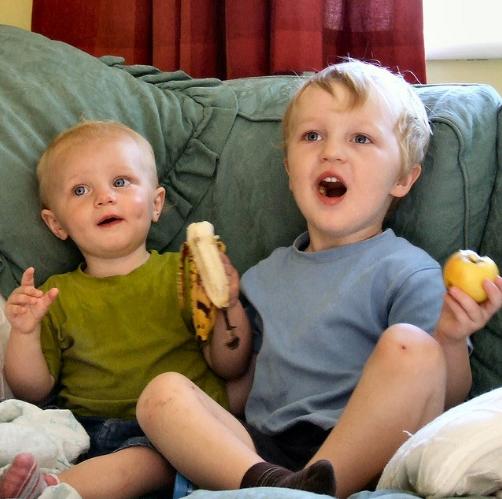
Regular Habits
Throughout their lives your children are watching everything you do, everything you say, and even everything you eat. If you spend the day eating frozen pizzas, TV dinners, chips and cookies, especially if you feed it to them, this is what they will naturally crave, and what they will ask you for.
Serve dishes like Fresh Tomato Pie, Fresh Broccoli Casserole, and Artichoke Spinach Lasagna on the other hand, your kids will learn to love vegetables, and ask for them when they are hungry. You doubt me? I’ve seen it in person many times.
The same goes for how much you eat. If you are eating all day long, nonstop, and eat a great deal at every sitting, they will follow suit. This is why you tend to see overweight parents with overweight children. Your children are just mimicking your actions. So what does this mean if you are eating healthy meals and healthy snacks in appropriate doses? Exactly.
In order to foster healthy eating habits and teach your children to make good food choices, you will have to be that example for them.
Cook homemade wheat pizza with all natural vegetable toppings, offer Crunchy Baked Fish Tacos with fresh coleslaw, our even make your own chicken nuggets and brussel sprouts with fresh ingredients. They can still eat yummy food and do it in a healthy way. See my article on 5 Quick and Easy Healthy Meals for Your Kids at Dinnertime for more great healthy recipes for kids.
For snacks, offer them fruits and veggies with cheese or peanut butter rather than a bag of chips. Stay away from having a regular dessert after dinner and instead offer them a cup of yogurt before bed. Let them see you making the same choices for yourself.
Teaching your children good habits is all about making good decisions yourself (even during pregnancy). You are a parent now, and a mentor for life. What you want to see from your kids, you must be yourself. Easy enough right?

The example you provide your kids now, whatever stage you're in, regarding food, will impact them for the rest of their lives. Even if you didn't eat all that healthy for the first few years, and your children haven't been eating good foods either, you can start changing those habits now. This may require a conversation about your desire to eat better, feel better and do better for them, but it's never too late to eat healthy.
It may even be hard to break habits like eating too many sweets, drinking sodas, or going out for fast food, as these items are highly addictive, but set some goals for yourself, and ask your children to help hold you accountable, and your children will want to follow your example. They so badly want to be like their parents, especially when they are young. This is the prime time to take advantage of that and set them up for success in the future.
© 2013 Victoria Van Ness


